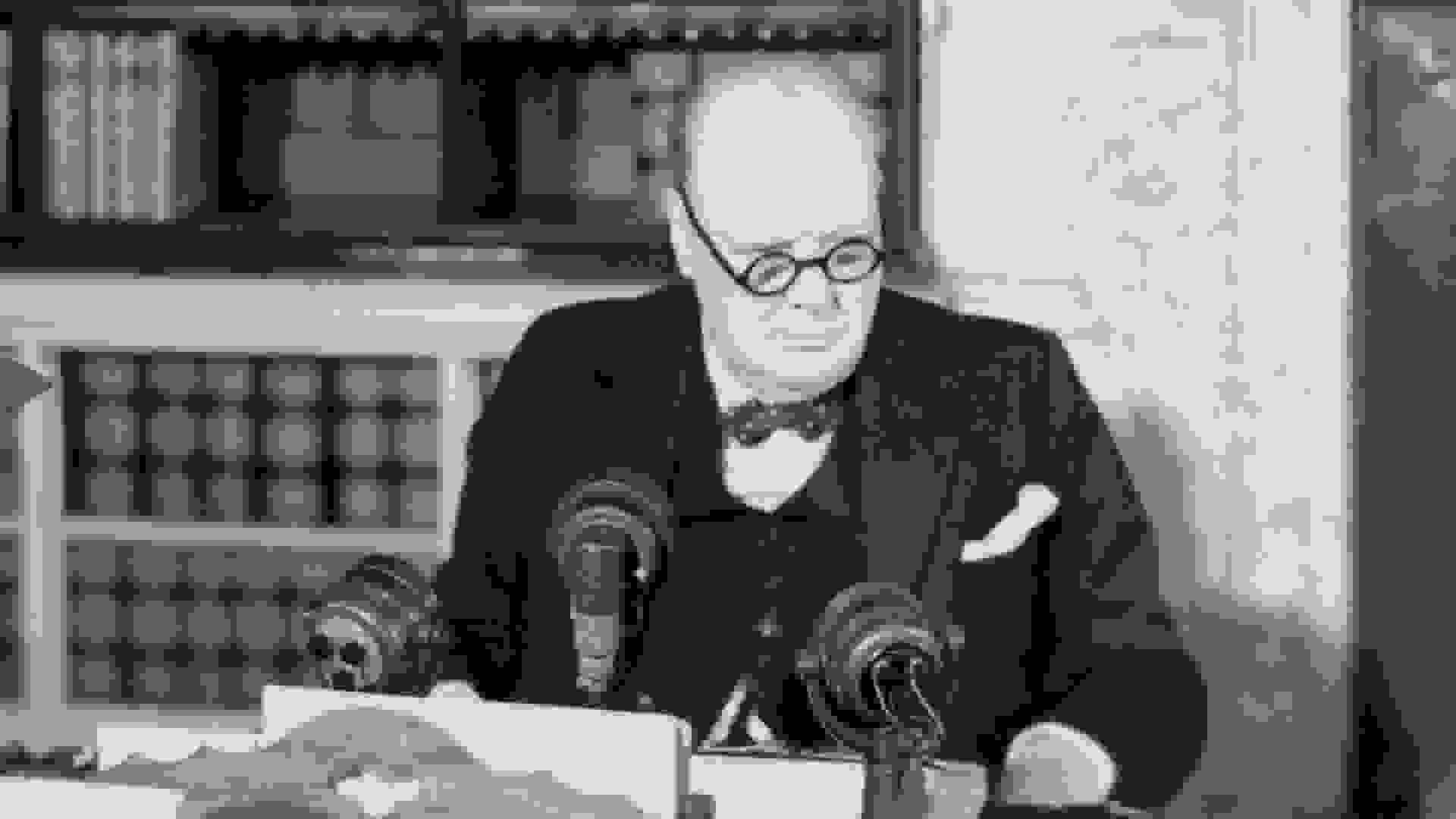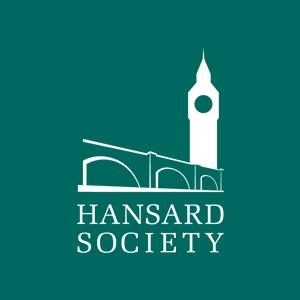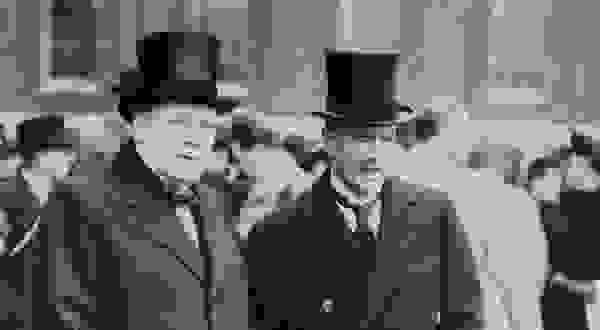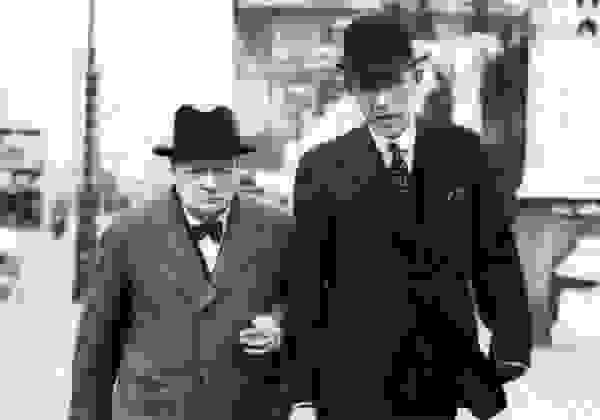Two days in the Commons Chamber that took Churchill to No.10: the Norway Debate of May 1940
Thu. 7 May 2020
The Coronavirus crisis is spotlighting the importance of the House of Commons Chamber in our democratic life. 7-8 May marks 80 years since the Norway Debate, the event which demonstrated this most famously. Over two days of debate, MPs' performances in the Chamber and a decision to force a division had historic consequences.

, University of Leicester
Professor Stuart Ball
Professor Stuart Ball
Emeritus Professor of Modern British History, University of Leicester
Stuart Ball CBE is Emeritus Professor of Modern British History at the University of Leicester. He is author and editor of 14 books on British political history, including Portrait of a Party: The Conservative Party in Britain 1918-1945 (Oxford University Press, 2013) and The Advent of Democracy: The Impact of the 1918 Reform Act on British Politics (Wiley, 2018).
Get our latest research, insights and events delivered to your inbox
Share this and support our work
The debate that took place in the House of Commons 80 years ago, on 7 and 8 May 1940, was the most significant in Parliament’s long history. Its outcome caused the resignation on 10 May of Neville Chamberlain as Prime Minister and his replacement by Winston Churchill, a change of leadership that had crucial consequences for both Britain and the world.
The immediate cause of the debate was the failure of the efforts to prevent the German seizure of Norway, following their invasion on 9 April. However, for a significant number of MPs who supported the National Government (the coalition of the Conservatives, a section of the Liberal Party and a few former Labour MPs that had been in power since 1931), this setback was linked to deeper concerns about the effectiveness of the war effort and Chamberlain’s leadership that had been growing since the outbreak of war.
In the previous week, Chamberlain had agreed to opposition pressure for a two-day debate on the conduct of the war. The occasion was provided by the procedural motion to adjourn for the Whitsun holiday, and when it began the opposition Labour Party leaders did not intend to take this to a vote.

Winston Churchill and Neville Chamberlain, 14 March 1939 (Public Domain, PD-US) {: .caption}
Rising to speak at 3.48pm on Tuesday 7 May, a hot day in a warm spring, the Prime Minister’s opening statement was low-key and focused mainly on events in Norway; even some of his supporters felt it was a weak performance and thought he seemed tired.
The response of Clement Attlee, the leader of the Labour Party, broadened the issue to a general lack of initiative and resolve: "Norway comes as the culmination of many other discontents ... everywhere the story is 'too late'."
These opening speeches set a pattern that continued through the debate, with those defending the government concentrating on the details of the Norwegian campaign, whilst its opponents set it in the context of more general failings of inadequate preparation, poor co-ordination, lack of drive and unwarranted complacency.
One consequence of this was that critics put little blame on Churchill, despite the latter’s key role as chair of the Military Co-ordination Committee, and instead directed their fire at Chamberlain.
Sir Roger Keyes, a Conservative MP who attended in his uniform as an Admiral of the Fleet, on the first day, and Lloyd George, the Prime Minister of 1916-22 who now sat as an Independent Liberal, on the second, both deliberately sought to exclude Churchill from their criticisms whilst delivering scathing attacks to mounting applause. The point was summed up by Lloyd George’s remark that Churchill "must not allow himself to be converted into an air-raid shelter to keep the splinters from hitting his colleagues".
The other dramatic speech was delivered in the early evening of 7 May by Leo Amery, a former Conservative cabinet minister and pre-war critic of Chamberlain’s foreign policy.
Normally a dull speaker, Amery began in an empty chamber at 8.03pm, but as it rapidly filled again after dinner and the atmosphere heightened, he concluded with a devastating denunciation, which echoed the doubts amongst government backbenchers that now extended far beyond the well-known critics, by quoting Cromwell’s dismissal of the Long Parliament:
"You have sat too long here for any good you have been doing. Depart, I say, and let us have done with you. In the name of God, go."
Later that evening, the Secretary of State for War, Oliver Stanley, delivered a poor winding-up speech for the government; the strongly pro-Chamberlain MP Henry Channon described it in his diary as "a shocking performance, luke-warm and ineffectual". Even so, the government Chief Whip told the Minister of Transport, Euan Wallace, that he "thought we had had a reasonably good first day in an admittedly difficult situation".
However, the critics on the government’s own side were becoming more confident that opinion was moving their way. The change of mood also influenced the Labour leadership, and on the morning of Wednesday 8 May they decided to call for a division, making it a vote of confidence.
The division was announced in Herbert Morrison’s opening speech when the debate resumed at 4.03pm and it provoked an angry response from Chamberlain, who declared: "At least we shall see who is with us and who is against us, and I call on my friends to support us in the Lobby to-night."
The temperature rose, hearts hardened, tempers sharpened. {: .aside-r }
Although ‘friends’ was a reference to the usual parliamentary term for members of the same party, this phrasing was an error of judgement as it seemed to put the issue on a purely personal basis. The following speech by the Secretary of State for Air, Sir Samuel Hoare, was muddled and ineffective, and once again the drama came from the critics in Lloyd George’s speech. In Channon’s words, "the temperature rose, hearts hardened, tempers sharpened".
The debate closed with Churchill’s vigorous defence of the government, which was politically important in demonstrating his loyalty to his leader. But by now the issue had moved from events in the fjords of Norway to Chamberlain’s capacity to be an effective or inspiring war leader.
The division took place at 11.00pm in a highly charged atmosphere, with government loyalists shouting ‘Quislings’ and ‘Rats’ at the rebels. When the result was announced, it caused chaos. Although the government had won the vote by 281 to 200, the slump in its normally much larger majority was in fact a clear political defeat.
Thirty-nine government MPs had voted against it, and between 30 and 40 more had attended the debate but abstained. The rebels extended beyond the predictable critics and included previously loyal Conservative MPs in the party’s mainstream.
Since the outbreak of war, many younger Conservative MPs had joined military units and become aware of deficiencies that differed from Ministers’ complacent reassurances; 16 of the MPs who voted against the government had pointedly attended the debate in uniform.
It was clear that a reconstructed government of all parties was now essential, but it was known that the Labour Party would not join a ministry led by Chamberlain, with whom there was a long-standing mutual antagonism. Even so, Chamberlain met Attlee on Thursday 9 May and extended an invitation, but the latter’s negative response was confirmed by Labour’s National Executive Committee the next day.

Winston Churchill and Lord Halifax, approx. 1939 (Public Domain, US-PD) {: .caption }
Churchill had made clear in another meeting on 9 May that he was unwilling to serve under Chamberlain’s other possible successor, Lord Halifax, the Foreign Secretary, who had then withdrawn his candidacy. Thus on the afternoon of Friday, 10 May, Chamberlain resigned the premiership and was succeeded by Churchill, who formed a new all-party National Government. Earlier that day, Hitler’s armies had launched their attack in the west, and the war now entered its most critical phase.
Sources:
Channon diary, R.R. James (ed.), Chips: The Diaries of Sir Henry Channon (London, 1967)
Nicolson diary, N. Nicolson (ed.), Harold Nicolson: Diaries and Letters 1930-1939 (London, 1966)
Wallace diary, Wallace MSS, Bodleian Library
Banner image: Winston Churchill at a BBC microphone about to broadcast to the nation on the afternoon of VE Day, 8 May 1945 (© Crown Copyright: IWM).
More
Related
Blog / "Will they come when you do call for them?": Should select committees have real power to compel evidence?
In a recent report the House of Commons Privileges Committee recommended the creation of a new criminal offence to deal with the rare problem of recalcitrant select committee witnesses. The proposal is narrow and looks workable. However, it remains controversial, and the Committee has invited further views, with final proposals expected later in 2021.
Guides / What happens on the day of the Queen's Speech and State Opening of Parliament?
The State Opening of Parliament, with the Queen's Speech at its centre, is the largest and most elaborate ceremonial occasion in the regular parliamentary calendar. The ceremony is rich in history and constitutional symbolism, and is also of immediate political interest and importance.
Blog / "... as if the Commissioners had walked into Parliament with a blank sheet of paper": Parliament's procedural handling of the Supreme Court's nullification of prorogation
The Supreme Court's 24 September nullification of the prorogation that had at that point been underway presented Parliament with a procedural and record-keeping problem. Here, the Clerks of the Journals in the two Houses explain how it was resolved.
Blog / The 2019 Liaison Committee report on the Commons select committee system: broadening the church, integrating with the Chamber
In its recent landmark report, the House of Commons Liaison Committee recommended a widening of the circle of those that select committees should hold to account, and a turn towards the public in all committee activity, but also tighter links between select committees and the House of Commons Chamber.
Blog / The Independent Group of MPs: will they have disproportionate influence in the House of Commons?
The roles occupied by members of The Independent Group - particularly on select committees, where they retain a number of important posts and command two and a half times as many seats as the Liberal Democrats – could give them more influence than their small, non-party status might normally be expected to accord them.
Blog / The DCMS Committee, Facebook and parliamentary powers and privilege
For its 'fake news' inquiry the House of Commons DCMS Committee has reportedly acquired papers related to a US court case involving Facebook. Andrew Kennon, former Commons Clerk of Committees, says the incident shows how the House's powers to obtain evidence do work, but that it might also weaken the case for Parliament's necessary powers in the long term.
Publications / Opening up the Usual Channels: next steps for reform of the House of Commons
In a speech to the Hansard Society on 11 October 2017, of which the full text and audio recording are below, the House of Commons Speaker, the Rt Hon John Bercow MP, proposed three key reforms for the House: a House Business Committee; reforms to procedures for Private Members' Bills; and a loosening of the government's exclusive control over recalling the House.
Blog / Corbyn's 'Save Our Steel' e-petition shows why the rules governing the recall of Parliament need to change
In a time of crisis Parliament is hamstrung if it is in recess. MPs are not masters of their own House because, in accordance with House of Commons Standing Order 13, only government ministers - in reality the Prime Minister - can request a recall of Parliament.
Reports / Measured or Makeshift? Parliamentary Scrutiny of the European Union
In this 2013 pamphlet, leading politicians, commentators and academics set out growing concerns that parliamentary scrutiny of EU business at Westminster was inadequate, questioned whether there was a democratic deficit at the heart of the UK's relationship with the EU, and canvassed ideas for reform of Parliament's EU engagement.
Reports / Opening Up The Usual Channels
This 2002 report lays bare the operation of one of the most distinctive, mysterious and critical features of the Westminster Parliament: the 'usual channels' - that is, the relationships between the government and opposition parties through which Parliament's business is organised.
Latest
Guides / Financial Scrutiny: the Budget
In order to raise income, the government needs to obtain approval from Parliament for its taxation plans. The Budget process is the means by which the House of Commons considers the government’s plans to impose 'charges on the people' and its assessment of the wider state of the economy.
Guides / Financial Scrutiny: the Estimates Cycle
In order to incur expenditure the government needs to obtain approval from Parliament for its departmental spending plans. The annual Estimates cycle is the means by which the House of Commons controls the government’s plans for the spending of money raised through taxation.
Data / Coronavirus Statutory Instruments Dashboard
The national effort to tackle the Coronavirus health emergency has resulted in UK ministers being granted some of the broadest legislative powers ever seen in peacetime. This Dashboard highlights key facts and figures about the Statutory Instruments (SIs) being produced using these powers in the Coronavirus Act 2020 and other Acts of Parliament.
Briefings / The Economic Crime (Transparency and Enforcement) Bill: four delegated powers that should be amended to improve future accountability to Parliament
The Bill seeks to crack down on ‘dirty money’ and corrupt elites in the UK and is being expedited through Parliament following Russia’s invasion of Ukraine. This briefing identifies four delegated powers in the Bill that should be amended to ensure future accountability to Parliament.
Articles / Brexit and Beyond: Delegated Legislation
The end of the transition period is likely to expose even more fully the scope of the policy-making that the government can carry out via Statutory Instruments, as it uses its new powers to develop post-Brexit law. However, there are few signs yet of a wish to reform delegated legislation scrutiny, on the part of government or the necessary coalition of MPs.